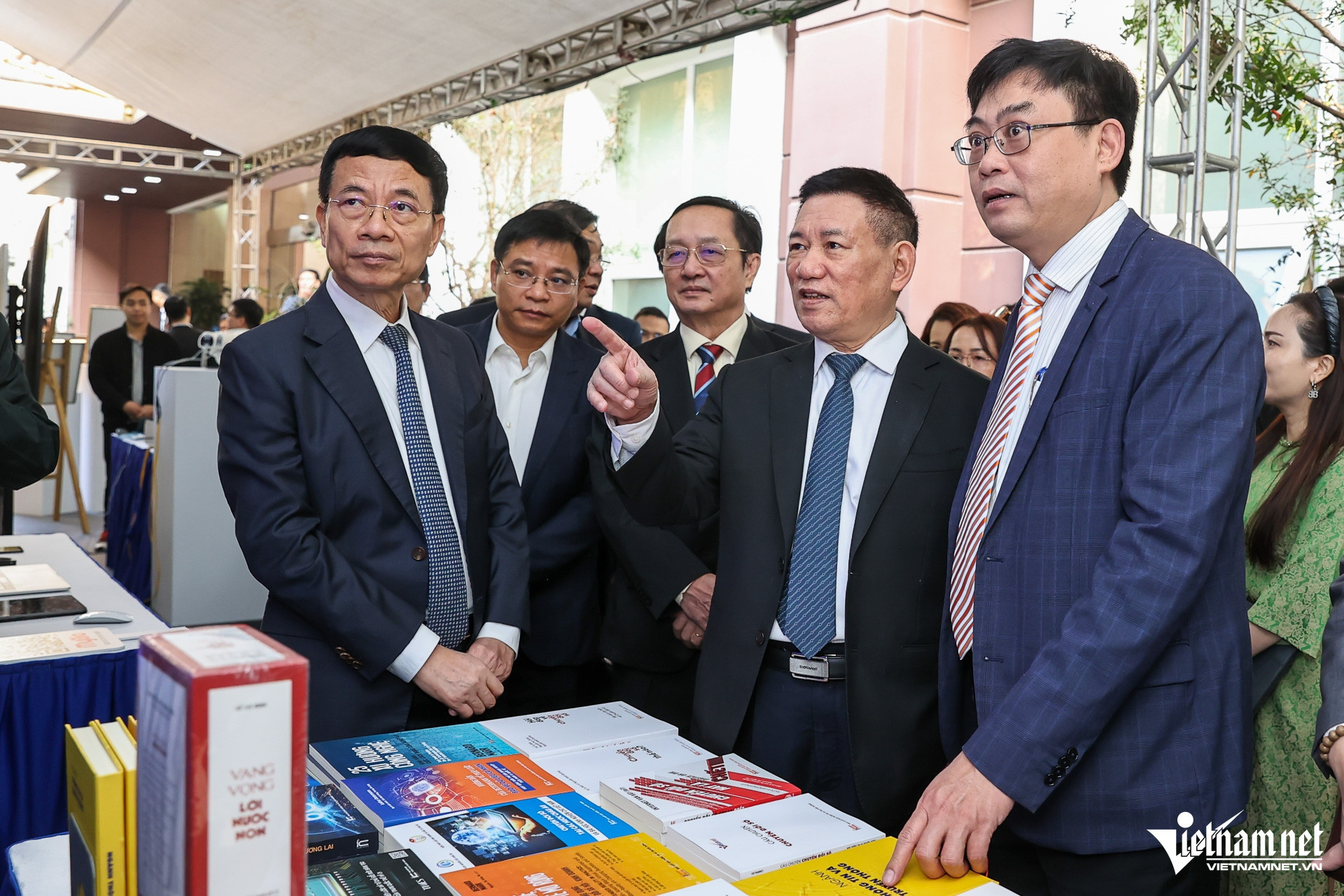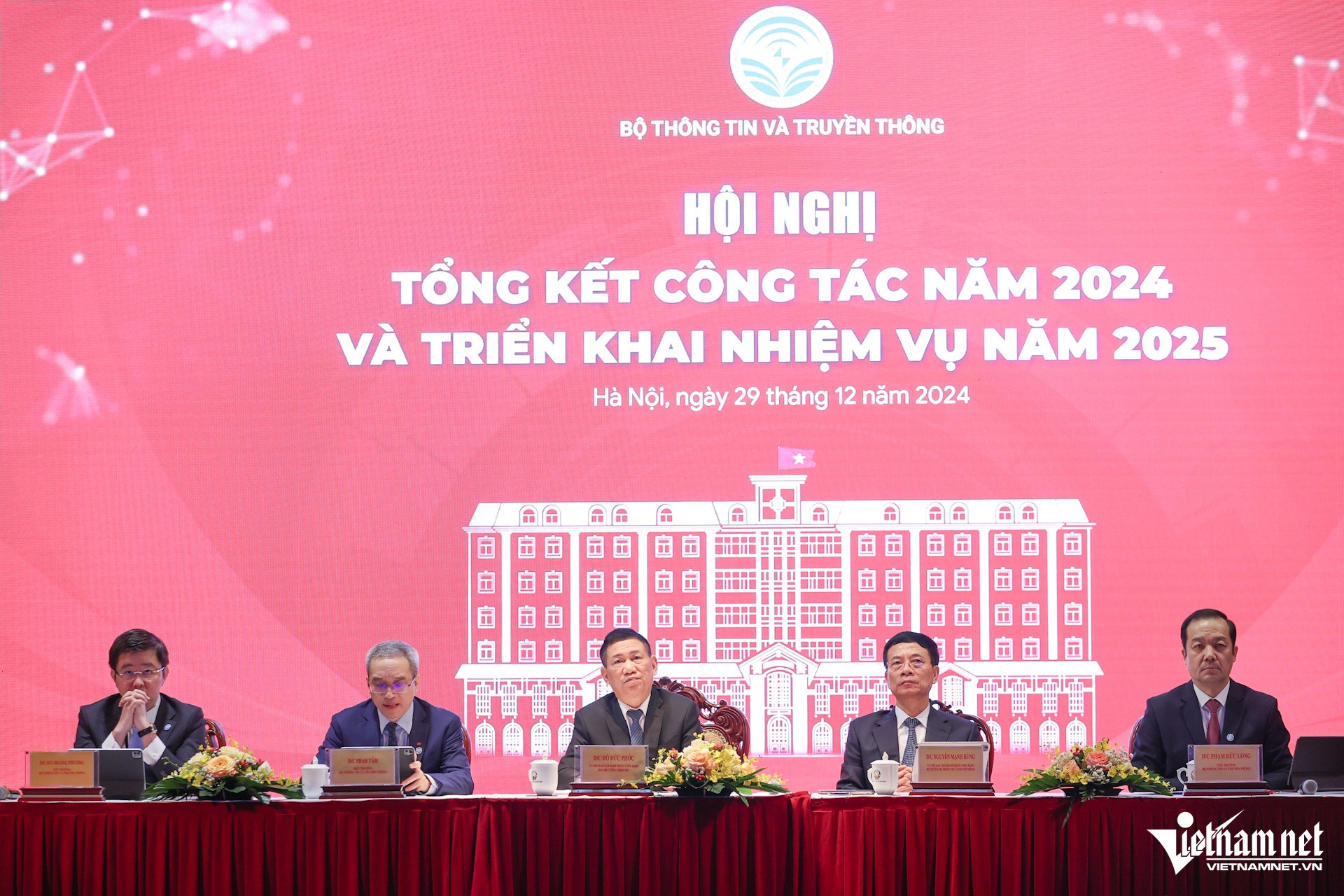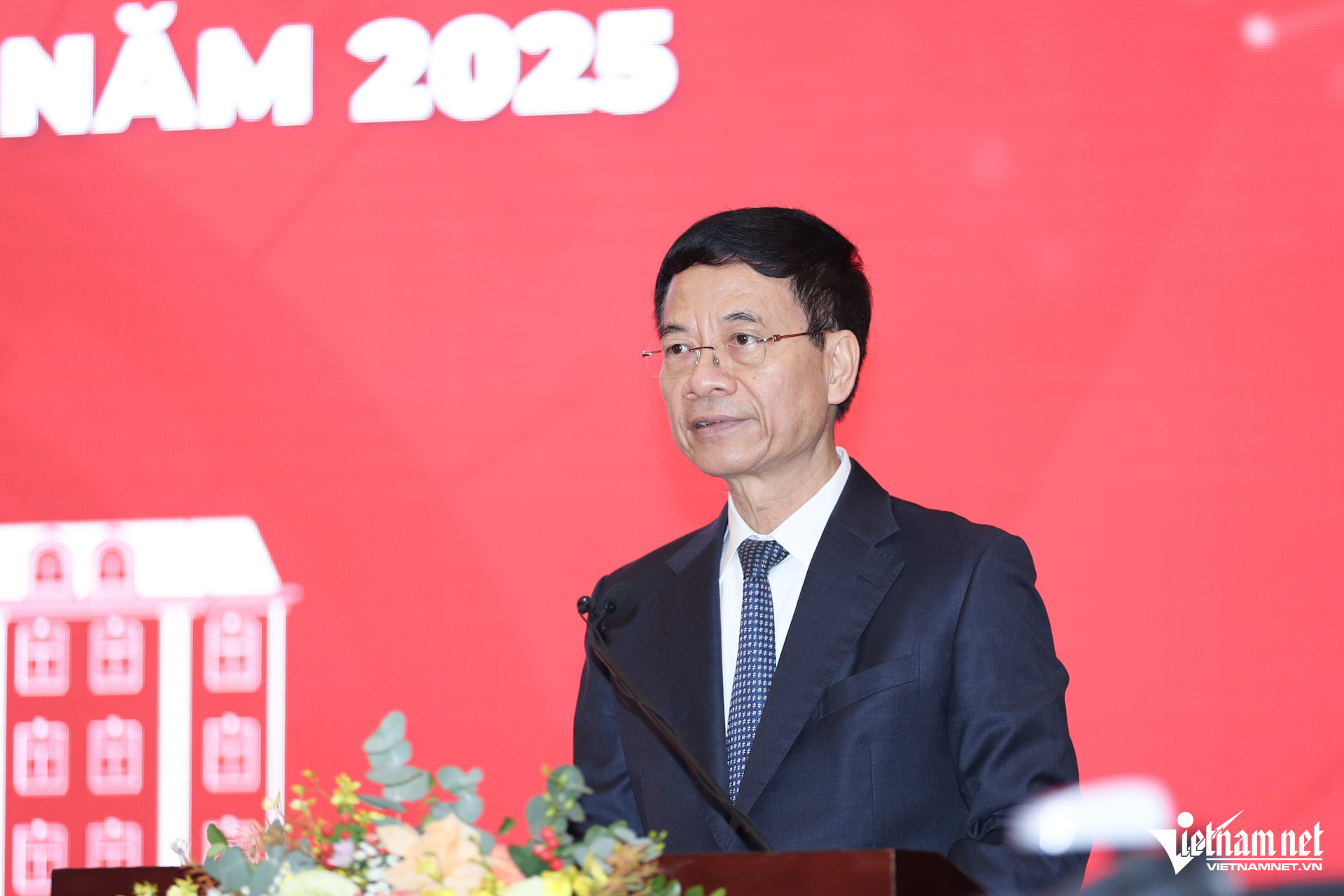Minister Nguyen Manh Hung emphasized that the Ministry of Information and Communications (MIC), as the backbone of digital infrastructure and technology, holds the mission of creating foundational platforms to propel Vietnam’s development.
Reviewing achievements and charting the future

Photo: Pham Hai.
On December 29, the MIC held its year-end conference to review achievements from 2024 and set directions for 2025. The hybrid event connected 63 provinces and cities across Vietnam.
The conference was attended by Deputy Prime Minister Ho Duc Phoc, Minister of Information and Communications Nguyen Manh Hung, and senior leaders from various ministries, localities, and key organizations in the information and communications sector.
Minister Nguyen Manh Hung opened the conference by reflecting on the past five years since the National Digital Transformation Program was introduced in 2020. He highlighted Vietnam’s pioneering spirit in embracing digital transformation, achieving some of the fastest growth in the region in digital economy, e-commerce, e-government, and online public services.
“We dared to explore and innovate, and this spirit has placed Vietnam among the fastest-growing countries in digital transformation,” Minister Hung said.
Ambitious targets for 2030

Minister Hung underlined the strategic objectives outlined in Resolution 57, issued by the Politburo on December 22, 2024. These include positioning Vietnam’s digital infrastructure, technology, and industry among the top 50 globally by 2030.
To achieve these goals, the MIC has set a roadmap for scaling up the nation’s digital transformation, digital economy, and digital society. Some areas, such as digital infrastructure and cybersecurity, are targeted to rank in the top 20–30 globally by 2030.
“This is a noble mission - one of leading and accelerating development to create a foundation for Vietnam to prosper,” Minister Hung declared.
The conference also highlighted successful collaborations, with notable contributions from entities like Viettel and local governments such as Hai Phong.
Hai Phong Deputy Chairman Hoang Minh Cuong outlined the city’s focus on building a digital government and delivering robust public services online. The city aims to have 75% of public service dossiers processed entirely online by the end of 2025.
Viettel Chairman and CEO Tao Duc Thang proposed prioritizing investments in foundational technologies like semiconductors, low-orbit satellites, and dual-use national defense technologies. He also called for venture capital funds to support technology startups and policies allowing businesses to trial innovative technologies and business models.
Le Quang Tu Do, Director of the Authority of Broadcasting and Electronic Information, shared progress in managing social media platforms and cross-border services, emphasizing a dual approach of “building and combating” to address harmful information and ensure online sovereignty.
New Ministry of Science, Technology, and Communications

The conference also discussed the forthcoming merger of the MIC with the Ministry of Science and Technology (MOST) to form the Ministry of Science, Technology, and Communications (MSTC).
Deputy Prime Minister Ho Duc Phoc noted that the merger aims to synergize the two ministries’ strengths, especially in technology. He emphasized the critical role of the new ministry in implementing Resolution 57 and fostering innovation, scientific breakthroughs, and digital transformation.
Deputy Prime Minister Phoc urged the MIC to address challenges in areas such as IT workforce development and cross-border platform management. He also stressed the importance of safeguarding the media environment and countering harmful information online.
Minister Nguyen Manh Hung reaffirmed the ministry’s commitment to meeting these challenges:
“The directives from the Deputy Prime Minister are not just goals - they are commands. It is our responsibility to deliver on them for the Government and the nation.”
Van Anh - Trong Dat - Tran Thuong